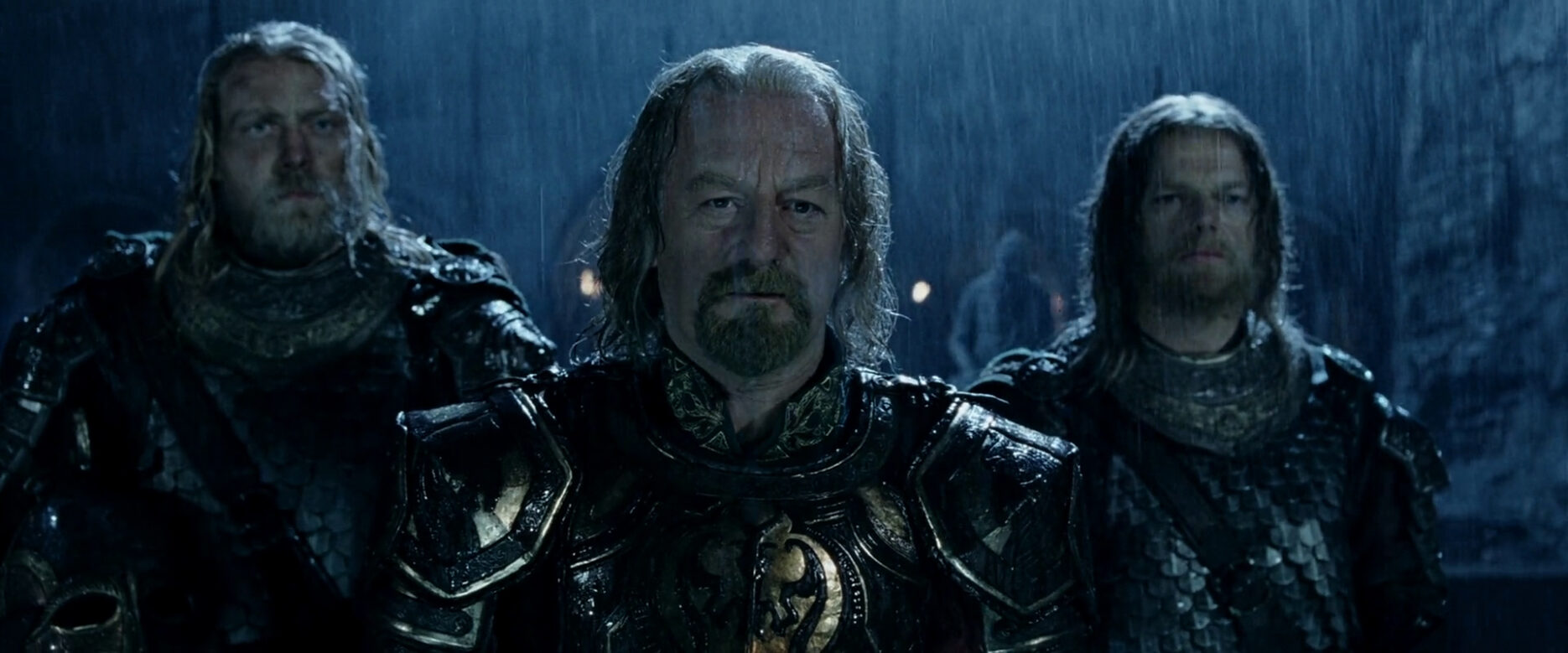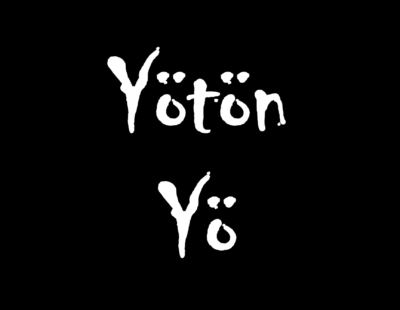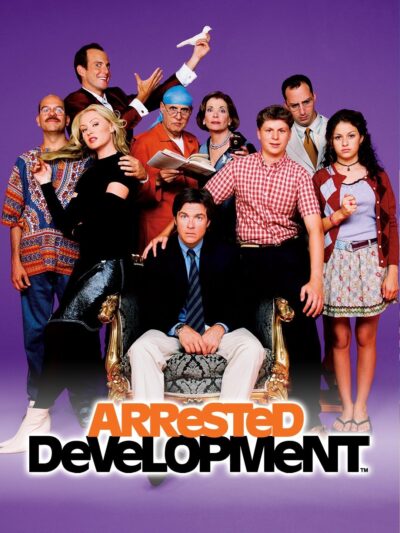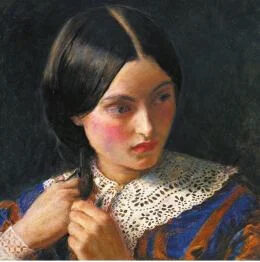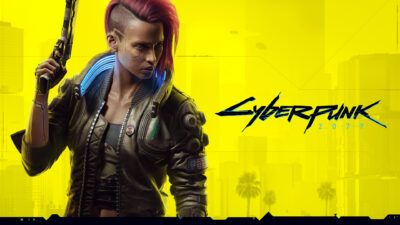As important as a good storyline is, what truly makes or breaks a narrative in terms of memorability is its characters. People always remember their favorite or a beloved character from the best novels, television shows, games, etc. but, what makes a good character? While there are a million things about creating characters we could break down and talk about, I want to focus on certain elements that truly enhance the experience readers have when falling in love with someone who’d never actually existed.
Authenticity:
A Great Character, regardless of situation or story, needs to be believable. This doesn’t necessarily mean the character’s motivations need to be absolutely understood or even related too by the audience, but it does mean that a character’s actions have to make sense. There has to be a reason for the character to behave the way that they do, and that reason needs to be portrayed to the audience. This is true of the most complex or the flattest characters, both though vastly different types of character still require the audience to believe their actions. This is also not to say a character cannot do absurd things, because even the very idea of having a character do something absurd can itself make the audience believe the character would do that action. Absurdity or normalcy can both be authentic.
Abbott talking about flat characters brings up a good point that I think can even explain authenticity in complex characters as well.
“To borrow a motif from Popeye the sailor man (another flat character) – “I yam what I yam”
While Abbott is using this to describe specifically flat characters, I believe the idea remains the same no matter the character in the terms of Authenticity. Characters are who they are, the minute the audience doesn’t believe with at least a little sincerity, a character would do what they did, then the immersion is broken.
Consistency:
A good follow up to authenticity since these elements of character will all bleed together (and that’s the point, they should!) consistency is required for the audience to understand and really enjoy a character. The character must make believable decisions that we can almost predict they would make depending on how they’ve acted. Consistency builds up who we as the audience believe that character to be. If a character is shown being a good father, and the author wishes us to see that character as a good father, then he must consistently try to be a good father. Failure and flaws are part of great characters, but consistency doesn’t mean 100% of the time. It means the character does as their understood principles require, should they not, they should feel bad about it. That’s consistency. If a character also makes erratic decisions and is supposed to be unpredictable, that’s still a form of consistency.
Abbott has a model that works well with the topic of consistency.
“reader/viewer + narrative = the reader/viewers construction of a character”
While this model came after a really good example of why consistency matters to characters as a whole that also ties a little into authenticity about a character Madame Bovary
“There neither is nor was a real Madame Bovary, only marks on a page. These marks do not so much refer to Madame Bovary as simulate or catalyze a representation of Madame Bovary in the mind of the reader. She does not exist before the marks, but after them”
There is no idea we already have of Madame Bovary in our head, and to create one, we as the audience require consistency in the way Madame Bovary acts as real people exhibit consistency which gives us an idea of who they are.
Motivation:
There is a driving force that propels anyone to do anything. That force is motivation. What gives a character motivation is very important to creating a good character but also just telling a good story. There needs to be things happening, and there needs to be a reason behind those things happening for there to be a story. This doesn’t mean that someone’s uncle had to kill someone else’s father, or that there’s a ring infused with the power of an ancient dark lord and if nobody should destroy it then all of middle earth would fall to ruin. No, it doesn’t always have to be that serious. Motivations can be as simple as ‘I do homework because I don’t want to get in trouble.’
Flaws:
Everyone has them, whether we want to admit them or not. I myself am horrible at drawing, I’m talking absolutely atrocious. While on its own, being a bad drawer isn’t really enough to create an award winning character, and I myself surely have more flaws than only having the capacity to scribble stick figures on my daughters drawings, it’s an example. Most character flaws will be something more serious, like the inability to understand one’s worth, trying to do the right thing but failing every time, wishing they were a hero when really they’re a coward. Flaws suck, but they’re supposed to. It’s just another thing that helps keep a character authentic and consistent. Though they don’t always have to stay forever….. Which leads to my last element.
Change:
Great characters have to undergo change. Something needs to be different for them by the end of their story then it was at the beginning. Flaws can be worked out, people could die, they could even fail to accomplish what they set out for, but something needs to be different. Maybe they’ve restored honor to their family, or overcome their cowardice to do one truly heroic act. Though it doesn’t always have to be so drastic. Now some of you reading this are probably thinking “But Josh, there are really good characters who are great the whole time and nothing about them changes!” and I’d say, you’re kinda wrong. But that’s okay, I’ll help you walk away from this experience with a little bit more understanding so you can ‘change’ for the better. These characters we view as not needing to change, or saying that they stay the same throughout the story, the world around them changes their ideas, even the wisest sages continue to learn by dealing with new situations. A character who already knows everything and is perfect, will not exist. As long as there is a journey, the characters on it will change in some way. You are slightly different every time you receive new information. Even if you think the new information didn’t change the way you viewed something, it helped solidify it, and that is a slight change in itself. Though good characters will have a noticeable change that can be picked up on during the story.
What am I reading?
Now that we’ve gone over what makes characters, let’s talk about some characters shall we? What I am currently reading is Ruination which is a novel written in the world of the popular Video Game League of Legends. This novel features a few characters from the game but it introduces them in a way that adds onto the way players of the game view them. League of Legends isn’t a story based video game, so all of its characters’ stories are told in other mediums like this book. The character I want to talk about is Viego, the king of Camavor. The Novel introduces him through the eyes of his royal guard and niece, Kalista. Though Kalista is Viego’s niece, she is older than him and acts more as his older sister. We are first introduced to Viego in the book’s prologue on his coronation day. In Camavor, the crowning of a new King is preceded by a Authurian style rite where the king’s sword is supposed to deem them worthy of their throne. Though the twist is that if the sword deems him unworthy when he grasps it, he would be killed by it. In this introduction he constantly makes known how scared he is, finding comfort in Kalista’s words and ultimately gathering enough courage to test his capabilities of becoming king. Viego’s father in his dying breath asked Kalista to watch over and guide his son, stating that Viego wasn’t ready to rule the kingdom.
He clutched at her with the last of his strength, with hands that more closely resembled a vulture’s talons than anything belonging to a man. “Promise me,” he croaked, burning with desperate fire. “The boy does not have the temperament to rule. I blame myself, but it is you who must bear the weight, granddaughter. Promise me you will guide him. Counsel him. Control him, if needed. Protect Camavor. That is now your duty.”
“I promise, Grandfather,” Kalista said “I promise.”
Though she lies to Viego about this by saying “He said you’d be a great king.”
I have only read the first few chapters of the book, so it is hard to give anything past my initial impressions of how they built the character. Viego is unstable and obsessive over his wife Isolde, making him a very dangerous ruler. I’m excited to go on this journey learning about who he is because I play as him often in the game.
A Brilliant Character:
I have talked about The Lord of The Rings before, and I’ve even talked about Theoden before but it didn’t feel right not mentioning him when talking about a brilliant character. I know we are just talking about text in this post but I need to mention both the in text version of Theoden and the film adaptation from Peter Jackson’s movies. Both treat the character in different ways, and both ways the character is brilliant.
Theoden in the Books:
Under the influence of Saruman’s Magic and the words of Grima Wormtongue, Theoden was swayed into a state of acceptance to the evils that were falling upon his land. After being freed from this magic, Theoden immediately returns to the understanding, selfless, and wise ruler he seemed to have been previously. He offers thanks to those who freed him and immediately works to come up with the next course of action for his people. Theoden in the books understands the bigger picture of the war and understands that it isn’t just Rohan that is in danger but all of Middle Earth. He looks past the initial problems of his people and understands that the needs of the world come first. Once his will is returned, he does not lose it again.
“‘The end will not be long,’ said the king. ‘But I will not end here, taken like an old badger in a trap. Snowmane and Hasufel and the horses of my guard are in the inner court. When dawn comes, I will bid them sound the Helm’s horn, and I will ride forth. Will you ride with me then, son of Arathorn? Maybe we shall cleave a road, or make such an end as will be worth a song—if any be left to sing of us hereafter.’
‘I will ride with you,’ said Aragorn.”
Theoden speaks from the inside of their final fortification during the battle of Helm’s Deep. Even backed into a corner, when all hope looks lost, he remains selfless and composed, offering a course of action that in any attempt would damn himself to death but possibly save others under his charge. He asks Aragorn to make a stand with him, as an inspiring leader to a man he trusts. When after they make their stand and win the day, Rohan survives. As far as the king should be concerned, his people are safe. They just experienced so much and endured the evils of this world, it would be cruel to put them back in danger… right?
This is what a good king/character would do, but Theoden isn’t just a good king/character. When he is confronted with the call to aid from Gondor, he accepts, riding out with the remainder of his men to aid a kingdom which didn’t help him during his own time of need. This is because he understands the duty of a leader extends beyond their own people. A leader must embody the principles they wish to instill in the world of people they lead, selflessness is a staple of those principles.
“Now silently the host of Rohan moved forward into the field of Gondor, pouring in slowly but steadily….
After a while the king led his men away somewhat eastward, to come between the fires of the siege and the outer fields. Still they were unchallenged, and still Théoden gave no signal…. A smell of burning was in the air and a very shadow of death. The horses were uneasy. But the king sat upon Snowmane, motionless, gazing upon the agony of Minas Tirith, as if stricken suddenly by anguish, or by dread. He seemed to shrink down, cowed by age. Merry himself felt as if a great weight of horror and doubt had settled on him…. They were too late! Too late was worse than never!….
Then suddenly Merry felt it at last, beyond doubt: a change. Wind was in his face! Light was glimmering….
But at that same moment there was a flash, as if lightning had sprung from the earth beneath the City. For a searing second it stood dazzling far off in black and white, its topmost tower like a glittering needle: and then as the darkness closed again there came rolling over the fields a great boom.
At that sound the bent shape of the king sprang suddenly erect. Tall and proud he seemed again; and rising in his stirrups he cried in a loud voice, more clear than any there had ever heard a mortal man achieve before:
Arise, arise, Riders of Théoden!
Fell deeds awake: fire and slaughter!
spear shall be shaken, shield be splintered,
a sword-day, a red day, ere the sun rises!
Ride now, ride now! Ride to Gondor!
With that he seized a great horn from Guthláf his banner-bearer, and he blew such a blast upon it that it burst asunder. And straightway all the horns in the host were lifted up in music, and the blowing of the horns of Rohan in that hour was like a storm upon the plain and a thunder in the mountains.
Ride now, ride now! Ride to Gondor!
Suddenly the king cried to Snowmane and the horse sprang away. Behind him his banner blew in the wind, white horse upon a field of green, but he outpaced it. After him thundered the knights of his house, but he was ever before them. Éomer rode there, the white horsetail on his helm floating in his speed, and the front of the first éored roared like a breaker foaming to the shore, but Théoden could not be overtaken. Fey he seemed, or the battle-fury of his fathers ran like new fire in his veins, and he was borne up on Snowmane like a god of old, even as Oromë the Great in the battle of the Valar when the world was young. His golden shield was uncovered, and lo! it shone like an image of the Sun, and the grass flamed into green about the white feet of his steed. For morning came, morning and a wind from the sea; and the darkness was removed, and the hosts of Mordor wailed, and terror took them, and they fled, and died, and the hoofs of wrath rode over them. And then all the host of Rohan burst into song, and they sang as they slew, for the joy of battle was on them, and the sound of their singing that was fair and terrible came even to the City.”
Theoden in the Movies:
Theoden in the Movies is more jaded to the world outside of his own kingdom. He is wise and selfless, though he often lets his emotions cloud his judgment of situations. The first scene I referenced above in Helms Deep goes differently in the movies, with Aragorn being the one to suggest the two of them ride out to meet the enemy. At this point, Theoden had given up, expecting them to become overrun and lose the day. Well, let me just show you:
This, while different from the books, exhibits a part of what makes Theoden a great character. We see his flaws, we feel his emotions and we understand his choices. He has abandoned hope in the beginning, yet Aragorn helps him become the king his people need him to be. He changes, and embraces this.
The next part, which is an important distinction between the movies and the books, is where Theoden accepts to help Gondor and understands why he needs to do it regardless of the fact they did not aid his people. In the films, Theoden makes it a point to ask Aragorn why he should ride to the aid of someone who did not come to them. His claims are reasonable and the audience understands his line of thinking though we desperately want him to help them because it is the right thing to do. It feels authentic and even though he rode out at Helms Deep, that was to help his own people so this line of questioning feels consistent to his character.
The point where movie and book Theoden become one is when Gondor lights these fire beacons that are supposed to call Rohan for aid. The Beacons are lit, and Aragorn rushes to Theoden with the information. The audience wants nothing more than for him to abandon his ideals to put his people first and understand that the bigger picture of the world needs them to fight. Book Theoden already understood this, and in this moment, when Theoden say’s Rohan will answer, the two characters have now become the same Theoden.
The next scene I’ll show you is the same Theoden in both versions. It is the second scene I quoted from the book. To me it’s the most telling of his character and shows not only his growth but the brilliance of a flawed but selfless king. As written above, here:
My Attempt at a Character like Theoden:
The evening air was brisk. Edward didn’t much like the cold, but with any luck once they cured the Baron, his city would return to its warmer days. A permanent shadow had covered the land, making it impossible for the sun’s heat to bleed through. The cobblestone streets were littered with garbage and what Lillian could only assume was human shit. She slid closer to Edward, just enough to get away from the road’s edge.
“We’re almost there.” The Mercenary said, calming the nerves of his mystic companion. Lilian gave a nod, accepting Edwards words just enough to breath out the breath she had been holding. Malnourished figures shambled in the shadows of broken buildings though they seemed more scared of the two outsiders than anything else.
“What are they?” Lilian whispered, now grasping the sleeve of Edwards leather coat.
“Vampire spawn. Keep your distance, they’re only fledgeling. They’re more likely to run from you than attack you.” He was seasoned in monster hunting, but then again, that’s why she hired him in the first place.
The two continued down the winding streets, slowly making their way up the road’s careful incline. The Barons manor was along a cliffside that hung from the edge of the city. The house itself was a decorated wood with a thick stone base, though the outer walls were a thin iron. As the double gate stood before them, Edward paced the outside for an easy point of entry.
“See anything?”
“There’s a bend in the fenceline. You may be able to squeeze through, though I’ll likely have to climb.” The Mercenary responded before returning to his employer.
“Well… see you on the other side?” She smiled, trying her best not to seem completely terrified. Edward just smiled and ushered her into the opening. He was right, she was able to fit, barely, he would have absolutely gotten stuck.
Once Lilian made it into the courtyard, she stopped to take in the scenery. Massive hedge sculptures stood unkempt and dying, the fountain water was brown and unmoving, but worst of all, there were decaying corpses that littered the inside walkways. A loud thud beside her startled Lilian enough to scream.
“Shhhh.” Edward put his finger up to his mouth before continuing. “If you don’t shut the fuck up, he’ll know we’re coming. Are you trying to kill us both?”
“You’re the one that scared me! This is your fault!” She replied in the most whispered yelling Edward had ever heard. Just as the Mercenary tried to reply, three Vampire knights surrounded them with thin blades drawn. These creatures were dressed in bright white armor, red accents shown though the undercarriage of the platemail.
“Fuck.” Edward whispered, lifting his hands into the air. Lilian was stunned in silent fear.
“Remove your weapons, the Baron would like to see you.” The Vampire’s voice was as threatening as a snake bite. The two complied, releasing the majority of their equipment, wooden stakes included. As Lilian was about to drop the cure, Edward waved her off. She looked at him a moment before placing the jar back into her bag.
“The Bag” The Vampire stated, pointing at Lilian
“You wouldn’t part a woman from her purse would you?” Edward said in an unrehearsed deception. Lilian stood still a moment, her breath waiting on the Vampire’s answer.
“Whatever, follow me.” The lead Vampire motioned for the other two to circle the rear, enclosing Edward and Lilian in. Once through the grand double doors, a foyer room sprawled out before them. Suits of armor, various artwork, and ceremonial weapons lined the inner walls. Another set of doors directly in front of them were open, inside was a long dining table and a single thin man sat at the head of the table. His body was clothed in dark but elegant clothing, which matched his status as Baron.
“Welcome, guards, leave us.” The Baron spoke, motioning for the two adventurers to come inside. Both remained silent, but did as they were told. The three guards bowed before stepping outside and closing the doors. This ornate dining table housed enough chairs for easily thirty guests, but the only two place settings were directly next to the Baron on opposite sides of the table. Edward nodded, taking his place on the Baron’s right side. Lilian followed his lead by taking the left.
“Care for a drink?” The Baron said, holding out a wine bottle. The thick contents seemed to almost cake against the inside of the glass. Edward lifted his glass for a moment, moving it closer to the bottle as the Baron went to pour it.
“NOW!” The Mercenary yelled, knocking the bottle over as he wrestled with the Baron’s wrists. Blood pooled on the floor from the shattered bottle as it hit cobblestone. Lilian pulled the cure from her bag, wasting no time as she shoved it into the Baron’s now open mouth. His fangs were extended as it seems he had meant to bite Edward. The jar that held the cure broke against the power of his forceful jaws. The Baron began to cough as Edward held him in place. His pale skin shifted to a dull but lively tan. The fangs shrunk back into basic incisors. His eyes returned from a clouded red to a shimmering green. The Baron fell back into his seat.
“How do you feel?” Edward asked, holding his hands up in defense.
“My pistol. Bring me my Pistol.” The Baron pointed to a glass case against the back wall of the room. Lilian walked over, but looked to her companion before opening it. He nodded. The woman returned with the pistol in hand, a lead ball and black powder in her other hand.
“Thank you, my lady.” The Baron nodded, taking the items from her hand. He tried his grip on the firearm a few times, aiming it away from the two adventurers to check how it felt.
“Well?” Lilian whispered.
“My strength will return. Dracula must pay in blood for the lives of my people. We must end his barbaric reign.” The bellowing voice of the true Baron returned. He stood from the seat, looking out the windows of his manor. Dark clouds were leaving the sky and the sunlight was touching his face for the first time in decades.
Works Cited:
Abbott, H. Porter. The Cambridge Introduction to Narrative. Cambridge University Press, 2020.
Reynolds, Anthony. Ruination. Orbit, 2022
J R R Tolkien. The Two Towers. Del Rey/Ballantine Books, 2018.
J R R Tolkien. The Return of the King. New York Houghton, 1987.
Featured Image:
Still from Peter Jackson’s film adaptation of J R R Tolkien’s The Two Towers. New Line Cinema, All Rights Reserved.
